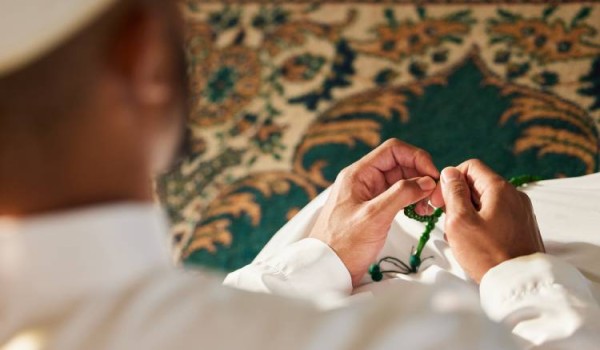Table of Content
- Muslim Wedding: Traditions, Ceremony and Rituals
- The Engagement: A Blessing for the Union
- Pre-Wedding Rituals: Muslim Weddings Tradition Begins
- The Main Event: The Nikah Ceremony
- Post-Wedding Traditions: The Celebration Continues
- Regional Variations: From Bangalore to Around the World
- Conclusion: The Essence of Muslim Weddings
Muslim Wedding: Traditions, Ceremony and Rituals
In this blog, you will learn what a Muslim wedding ceremony includes. It will also help you learn about the customs performed at it and the importance of each ritual.
The Engagement: A Blessing for the Union
Like any other culture, before the actual wedding, the families of the two individuals sit together for an engagement ceremony. It is not as lavish as the wedding. But, it is equally important as it acknowledges the forthcoming marriage. During this period, both families exchange gifts, and the bride and groom's parents start with preparations for the wedding. Engagement is a great opportunity for individuals and their families to connect.
Pre-Wedding Rituals: Muslim Weddings Tradition Begins
Like other cultures, Muslim weddings also have their pre-wedding customs and practices. Here are some of the common ones:
Mehendi Ceremony
The Mehendi ceremony is a colourful, joyous pre-wedding tradition where intricate henna patterns are applied to the bride's hands and feet. Henna symbolises beauty, and it's said that the darker the Mehendi, the more love the bride will receive from her husband and in-laws.
Haldi Ceremony
This is another ceremony in which family members apply a paste of turmeric and sandalwood on the bride and groom's skin. It’s believed to purify the couple before the wedding and bring good fortune.
Imam Zamin Ceremony
According to this tradition, the groom's mother puts a purse containing money into a veil and puts it around the bride’s wrist.
Also Read - The Rights and Responsibilities of a Muslim Wife
The Main Event: The Nikah Ceremony
Every Muslim wedding has a common foundation of the Nikah, a legal contract between the bride and groom. While other religious weddings emphasise the religious factors of the wedding, the Nikah is quite simple and requires consensus.
Ijab-e-Qubool (The Proposal and Acceptance)
The Nikah consists of the proposal (Ijab) and the girl's acceptance (Qubool). The bride and groom must make themselves available and show their consent to get married in the presence of witnesses. In many customary Muslim weddings, the bride is interrogated by the Qazi (the conducting priest), and her responses involve acknowledging the marriage. After that, the bride and groom are asked and expected to respond three times with “Qubool,” meaning- I accept.
Mehr (The Dowry)
The Mehr is one of the important components of the Muslim wedding process. This is an obligatory gift, which can be money, property, or valuable objects, which the groom has to present to the bride. The Mehr can be used for money or any other kind of gift. Mehr to be given by the groom is decided before the Nikah.
The Nikah Namah
After accepting the dowry and Mehr's amount, the Nikah Namah, or the marriage contract, is prepared. Two males witness this contract, and the bride and the groom will make the marriage contract valid and enforceable. In a Muslim marriage, the couple becomes one after this stage.
Post-Wedding Traditions: The Celebration Continues
The Muslim wedding is followed by a purely happy celebration, which includes joking, dancing, and eating. Some of the most common post-wedding traditions include:
Walima (The Reception)
The Walima is the reception party, which is set on the groom’s side, and this symbolises the presentation of the marriage to the public. It is normally a big occasion followed by people’s celebration of the new couple through feasting foods and sharing loved merriments. Most Muslim brides in Bangalore and other parts of India also have Walima as the final event of their Muslim wedding.
Rukhsati (Bride’s Departure)
It is a tradition in Muslim marriages that takes place soon after the Nikah. In this, the bride leaves her parent’s home with tears. Filled with tears and good wishes, the bride bids farewell to the house where she was born to join her husband’s house.
Chauthi Ceremony
The bride returns to her parent’s home four days after the wedding and stays there for a day.
Regional Variations: From Bangalore to Around the World
The customs followed by Muslim couples are quite different depending on the country. For example, some practices are similar in all Muslim countries, while local traditions much more reflect others. The brides from Bangalore may differ slightly from those from other parts of India or the Middle East.
Conclusion: The Essence of Muslim Weddings
A Muslim wedding ceremony is more than just a celebration of love; it is a union of two souls, families, and traditions. From the Ijab-e-Qubool to the signing of the Nikah Namah, every step is carefully crafted to ensure the couple embarks on a journey filled with blessings and joy.
For those looking for the best Muslim marriage experiences, Muslim marriage sites offer an excellent platform for finding compatible matches. Whether you're seeking Muslim brides in Bangalore or beyond, these sites play a crucial role in connecting families and creating unions that last a lifetime.
To ensure that all legal aspects are fulfilled, the Nikah Namah remains an indispensable part of the Muslim wedding, cementing the spiritual and legal relationship. A Muslim wedding, filled with customs, rituals, and joy, is a memorable event that brings together family, faith, and love.


💬 Comments
Wonderful overview of Muslim wedding traditions beautifully explained rituals, cultural richness, and meaningful customs that educate and inspire every reader.